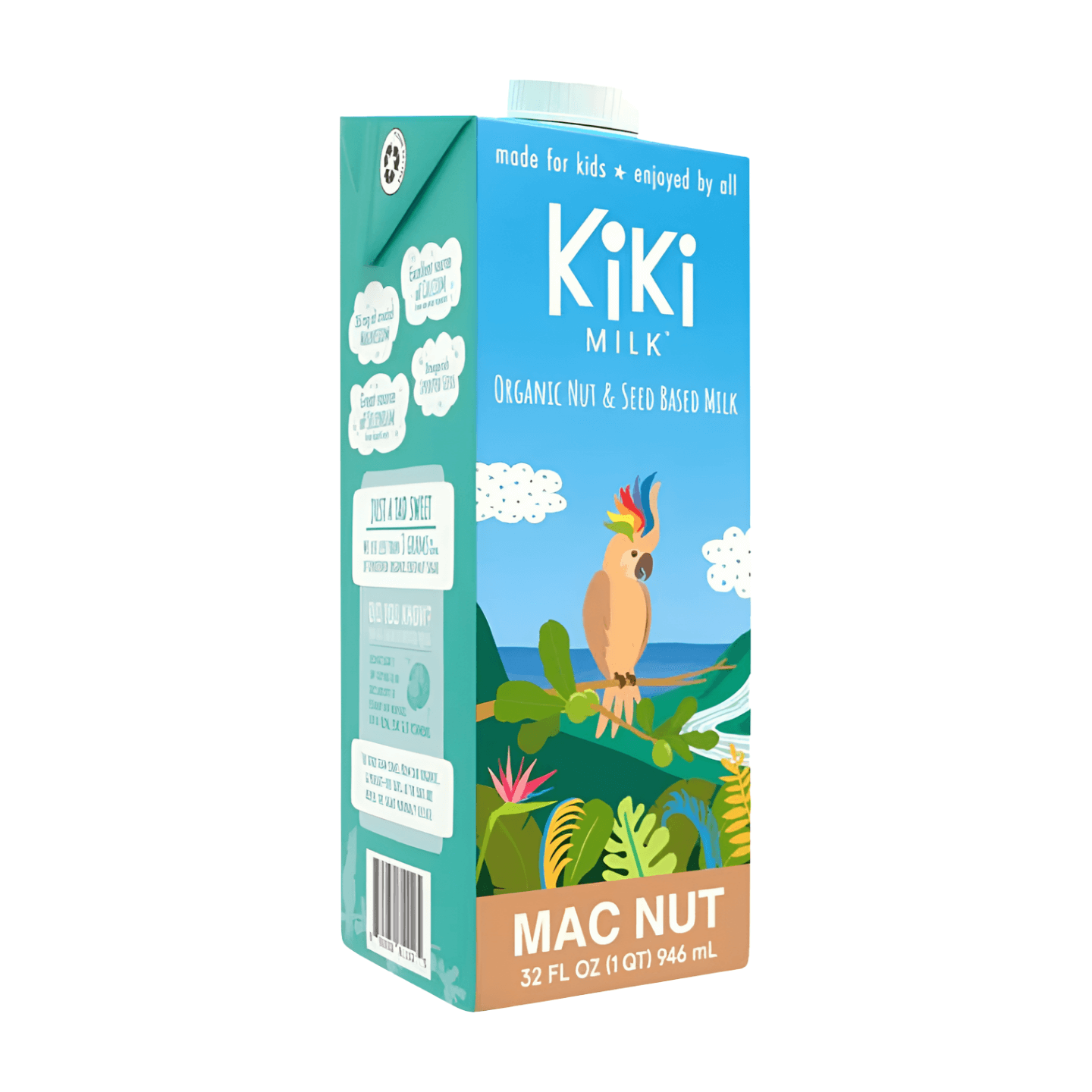What Does "Kiki Meaning Slang" Really Mean? A Comprehensive Guide
Have you ever heard someone say “Let’s have a kiki” and wondered what it meant? If so, you’re not alone. The term “kiki meaning slang” has become increasingly popular in modern pop culture, often popping up in conversations, social media posts, and even mainstream media. This slang term carries a rich history and cultural significance that goes beyond its surface-level usage. Whether you're new to the phrase or just curious about its deeper meaning, this guide will unravel the mystery behind “kiki meaning slang” and help you understand why it’s more than just a trendy buzzword.
Derived from LGBTQ+ communities, “kiki” originally referred to a casual gathering or party where friends would come together to chat, laugh, and enjoy each other's company. Over time, the term evolved, becoming a staple in pop culture and slang lexicons worldwide. Today, “kiki meaning slang” is often used to describe a fun, lighthearted hangout or a moment of shared joy. Its versatility and inclusivity make it a beloved term across diverse groups, and its usage continues to grow.
As we dive deeper into the origins, evolution, and cultural impact of “kiki meaning slang,” you’ll discover how this seemingly simple word has become a symbol of connection, creativity, and community. From its roots in drag culture to its modern-day presence in memes and TikTok trends, “kiki” has transcended its original context to become a universal expression of camaraderie. So, buckle up as we explore everything you need to know about this fascinating term and its place in today’s world.
Read also:Who Is Lakiha Spicer Discover The Inspiring Story Of A Rising Star
Table of Contents
- What Does "Kiki" Mean in Slang?
- Why Is "Kiki Meaning Slang" So Popular Today?
- The Origins of "Kiki Meaning Slang": A Deep Dive
- How Is "Kiki" Used in Modern Conversations?
- Can "Kiki Meaning Slang" Have Different Interpretations?
- Kiki in Pop Culture: Where Can You Find It?
- What Are the Benefits of Using "Kiki" in Slang?
- Frequently Asked Questions About "Kiki Meaning Slang"
What Does "Kiki" Mean in Slang?
At its core, “kiki” is a slang term that refers to a fun, casual gathering or moment of connection with friends. It’s often used to describe a situation where people come together to laugh, gossip, or simply enjoy each other’s company. The term is particularly popular within LGBTQ+ communities, where it has long been associated with camaraderie and self-expression. However, its appeal has expanded far beyond its original context, making it a widely recognized phrase in mainstream culture.
One of the reasons “kiki” has gained such traction is its versatility. For example, you might hear someone say, “Let’s have a kiki,” when inviting friends over for a relaxed evening. Alternatively, it could be used to describe a spontaneous moment of joy, such as laughing uncontrollably with a group of friends. The term’s flexibility allows it to adapt to various scenarios, making it a go-to phrase for anyone looking to capture the essence of a good time.
In addition to its social connotations, “kiki” also carries an element of inclusivity. It’s a term that fosters a sense of belonging and encourages people to let loose and be themselves. Whether you’re at a party, a coffee shop, or even texting with friends, “kiki” can serve as a reminder to embrace the lighter side of life and cherish the moments that bring people together.
Why Is "Kiki Meaning Slang" So Popular Today?
So, what’s behind the meteoric rise of “kiki meaning slang” in today’s world? The answer lies in its ability to resonate with people on a personal and cultural level. In an era where social media dominates our interactions, “kiki” offers a refreshing break from the curated perfection often seen online. It encourages authenticity and fosters genuine connections, which is something many people crave in their daily lives.
Another factor contributing to its popularity is its association with drag culture. Shows like *RuPaul’s Drag Race* have played a significant role in bringing “kiki” into the mainstream. Contestants on the show frequently use the term to describe moments of bonding or celebration, and fans have eagerly adopted it into their own vocabularies. This crossover from niche subcultures to mainstream media has helped “kiki meaning slang” reach a wider audience.
Additionally, the rise of platforms like TikTok and Instagram has amplified the term’s visibility. Memes, videos, and hashtags featuring “kiki” have gone viral, further cementing its place in contemporary slang. Whether it’s a dance challenge or a humorous skit, “kiki” has become a staple in online content, making it more relatable and accessible to younger generations.
Read also:Barry Weiss The Visionary Leader Transforming Industries
What Makes "Kiki" Stand Out in Modern Slang?
Unlike many slang terms that fade quickly, “kiki” has staying power. Its appeal lies in its simplicity and adaptability. It’s easy to remember, fun to say, and can be used in a variety of contexts. Whether you’re describing a night out with friends or a quick chat over coffee, “kiki” fits seamlessly into everyday conversations.
Moreover, “kiki” carries a sense of positivity that sets it apart from other slang terms. While some phrases might come across as dismissive or exclusive, “kiki” is inherently inclusive. It invites people to join in the fun and share in the joy, making it a universally appealing expression.
The Origins of "Kiki Meaning Slang": A Deep Dive
To truly understand “kiki meaning slang,” it’s essential to explore its origins. The term has deep roots in LGBTQ+ culture, particularly within drag and ballroom communities. Historically, “kiki” was used to describe a casual gathering or party where friends would come together to socialize, laugh, and support one another. These events were often spaces of refuge and empowerment, providing a sense of belonging for individuals who felt marginalized in mainstream society.
The ballroom scene, which emerged in the mid-20th century, played a pivotal role in popularizing “kiki.” Ballroom culture, known for its vibrant performances and fierce competitions, provided a platform for self-expression and creativity. Within this community, “kiki” became synonymous with joy, camaraderie, and resilience. It was a term that celebrated the beauty of connection and the importance of finding joy in the face of adversity.
Over time, “kiki” began to transcend its original context, gaining traction in broader LGBTQ+ circles and eventually entering mainstream culture. Its journey from niche subculture to global phenomenon is a testament to the power of language to bridge communities and foster understanding.
How Did "Kiki" Transition from Subculture to Mainstream?
The transition of “kiki” from subculture to mainstream can be attributed to several factors. One of the most significant was the rise of drag culture in popular media. Shows like *RuPaul’s Drag Race* not only introduced audiences to the art of drag but also showcased the language and traditions of LGBTQ+ communities. Contestants frequently used terms like “kiki” during the show, exposing millions of viewers to its meaning and significance.
Additionally, the internet played a crucial role in spreading the term. Social media platforms like Twitter, Instagram, and TikTok provided a space for users to share memes, videos, and posts featuring “kiki.” These platforms allowed the term to reach a global audience, further solidifying its place in modern slang.
How Is "Kiki" Used in Modern Conversations?
In today’s world, “kiki” is more than just a slang term—it’s a cultural phenomenon. Its usage has expanded beyond its original context, making it a versatile and widely recognized phrase. Whether you’re texting with friends, attending a party, or scrolling through social media, chances are you’ll encounter “kiki” in one form or another.
One of the most common ways people use “kiki” is to describe a fun, lighthearted gathering. For example, you might say, “Let’s have a kiki tonight,” when planning a casual hangout with friends. The term’s playful tone makes it perfect for capturing the essence of a good time without sounding overly formal or serious.
Another popular usage of “kiki” is in the context of laughter or humor. If you’re having a hilarious conversation with someone, you might exclaim, “This is such a kiki!” to express your enjoyment. In this sense, “kiki” serves as a shorthand for moments of shared joy and connection.
Can "Kiki" Be Used in Professional Settings?
While “kiki” is primarily associated with casual and informal settings, its usage in professional environments is becoming more common. For instance, team-building activities or office parties might be referred to as a “kiki” to emphasize their fun and relaxed nature. However, it’s important to gauge the appropriateness of the term based on the context and audience.
Can "Kiki Meaning Slang" Have Different Interpretations?
Like many slang terms, “kiki” can have different interpretations depending on the context and cultural background of the speaker. While its core meaning revolves around fun and connection, the nuances of its usage can vary widely.
For example, in some circles, “kiki” might refer specifically to a drag or ballroom event, while in others, it could describe any casual gathering or moment of joy. This flexibility allows the term to adapt to different settings and communities, making it a dynamic and inclusive expression.
What Are Some Regional Variations of "Kiki"?
Regional variations of “kiki” can also influence its meaning. In some parts of the world, the term might carry additional connotations or be used in unique ways. Exploring these variations can provide valuable insights into how language evolves across cultures.
Kiki in Pop Culture: Where Can You Find It?
From music to movies, “kiki” has made its mark on pop culture in numerous ways. Artists, influencers, and creators have embraced the term, incorporating it into their work to connect with audiences on a deeper level.
What Are Some Famous Examples of "Kiki" in Pop Culture?
One notable example is the song “Let’s Have a Kiki” by Scissor Sisters, which celebrates the joy and camaraderie associated with the term. Similarly, viral TikTok trends and memes featuring “kiki” have further cemented its place in contemporary culture.
What Are the Benefits of Using "Kiki" in Slang?
Using “kiki” in slang offers several benefits, from fostering inclusivity to promoting positivity. Its lighthearted nature makes it an ideal choice for creating connections and celebrating moments of joy.
Frequently Asked Questions About "Kiki Meaning Slang"
What Does "Kiki" Mean in LGBTQ+ Culture?
In LGBTQ+ culture, “kiki” refers to a casual gathering or moment of connection, often characterized by laughter and camaraderie.
Can "Kiki" Be Used in Formal Settings?
While “kiki” is primarily informal, it can be used in professional settings to describe relaxed or fun activities, provided the context is appropriate.
How Did "Kiki" Become Popular?
The term gained popularity through its association with drag culture and mainstream media, particularly shows like *RuPaul’s Drag Race*.
Conclusion
From its roots in LGBTQ+ communities to its current status as a global slang phenomenon, “kiki meaning slang” has come a long way. Its ability to foster connection, celebrate joy, and adapt to various contexts makes it a truly remarkable term. Whether you’re using it to describe a fun night out or a spontaneous moment
Exploring Curt Menefee Net Worth: A Journey Through His Career And Achievements
How To Perform An Arizona Corporations Commission Name Search: A Comprehensive Guide
Discovering "The Keepers Babe Of The Day": A Celebration Of Inspiration And Excellence

RQ Meaning Abbreviation Examples Slang Archives

Kiki Milk Mac Nut Milk Pick